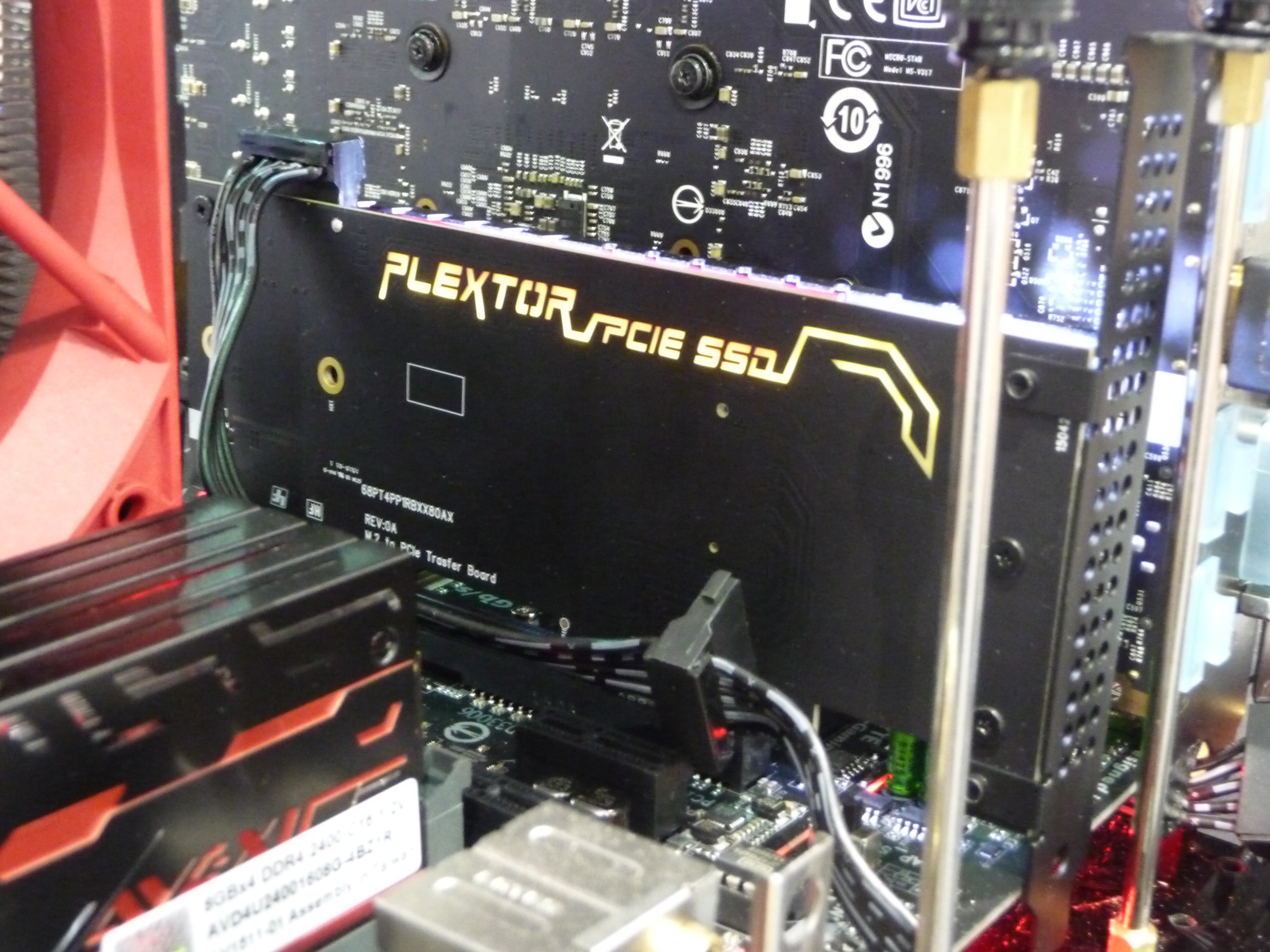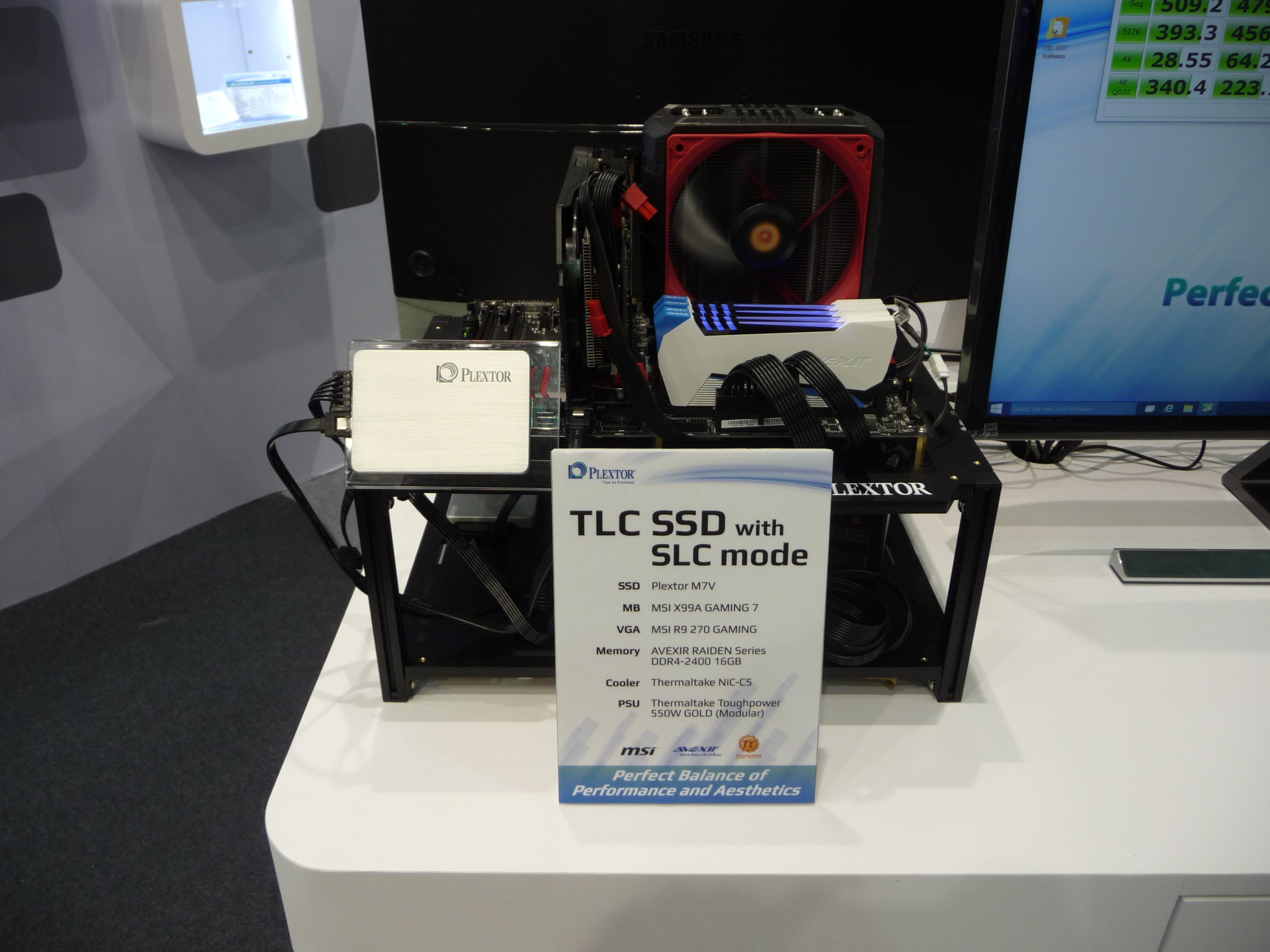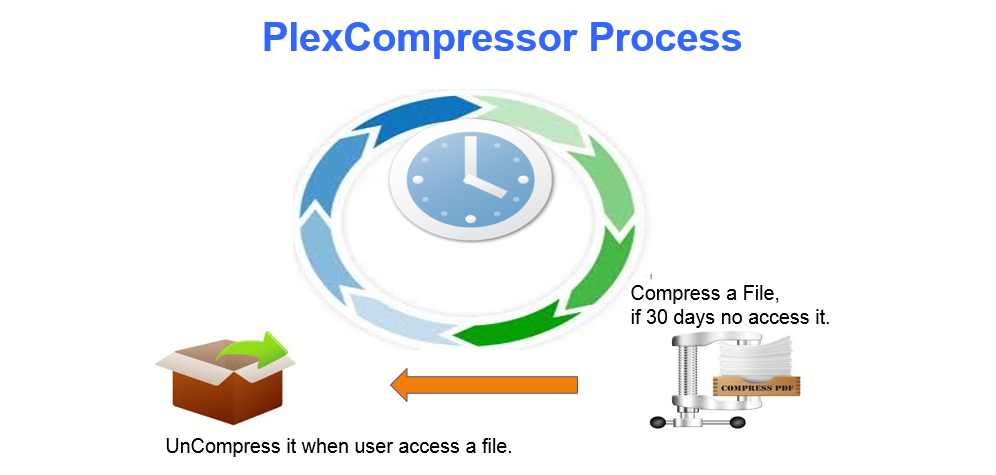The State Of Solid State: Computex 2015
Plextor
Plextor teased us with its M7e - a PCIe SSD we've seen on display several times since 2014's Flash Memory Summit - yet again. In its current form, the M7e looks identical to the M6e except for a lit PCB that adds some etched Plextor branding to the top side. We're not sure if Plextor plans to use Marvell's Eldora or Eldora Lite controller, but we suspect the four-channel Eldora Lite will be called to the plate for this product.
Tagging along in the M7 product series is the M7V, a Toshiba A19 TLC-based drive with a Marvell controller. Parent company Lite-On displayed a similar SSD in Marvell's display area with Lite-On branding. The M7V looked production-ready with all of the features working, including the advanced software. Both the M7e and M7V should launch in August at Flash Memory Summit.
| Row 0 - Cell 0 | PlexTurbo | PlexTurbo 2 | PlexTurbo 3 |
| Write Through Plus | Yes | Yes | Yes |
| Reduced Memory Usage | Yes | Yes | Yes |
| Life Extend Mechanism | Yes | Yes | Yes |
| PlexTurbo Viewer | Row 4 - Cell 1 | Yes | Yes |
| Maximum Cache Size | 1GB | 4GB | 16GB |
| Cache Size Adjustment | Row 6 - Cell 1 | Row 6 - Cell 2 | Yes |
| Cache Release Adjustment | Row 7 - Cell 1 | Row 7 - Cell 2 | Yes |
| Read Through Cache | Row 8 - Cell 1 | Row 8 - Cell 2 | Yes |
| Multi-Disk Support | Row 9 - Cell 1 | Row 9 - Cell 2 | Yes |
| Preload Function | Row 10 - Cell 1 | Row 10 - Cell 2 | Yes |
| Reset Cache Log | Row 11 - Cell 1 | Row 11 - Cell 2 | Yes |
Plextor continues to advance PlexTurbo with new features. PlexTurbo 3 raises the bar by allowing users to adjust the amount of DRAM dedicated to the storage buffer. If your workload requires more DRAM for system applications, the software will automatically release RAM back to the system and reclaim it when available for cache purposes again.
PlexCompressor is the most innovative software feature to come out of Plextor since its bit-for-bit optical disc cloning technology, which was introduced more than a decade ago in PlexTools. The software will automatically compress the files on your computer if the data hasn't been accessed in 30 days. This can lead to a massive reduction in file size. In the past, I've shown that SSD performance drops with more data on the flash. PlexCompressor will reduce the amount of used space to keep performance higher. When the data is needed, it is decompressed in real time. If the technology works as well as Plextor claims, it could be the next leap in SSD software.
Get Tom's Hardware's best news and in-depth reviews, straight to your inbox.

Chris Ramseyer was a senior contributing editor for Tom's Hardware. He tested and reviewed consumer storage.
-
blackmagnum The time is ripe to change your old spinning catastrophe and embrace the now of SSD.Reply -
Vivecss So have they fixed the data loss if not connected to electricity for more than a week thing?Reply -
synphul Spinning catastrophe? My hdd doesn't perform much slower than my ssd for 90% of tasks, the biggest improvement was installing windows. For that I was impressed. An hdd shouldn't be a catastrophe, if it is I'd strongly suggest a better brand/model. Installed an ssd on a workstation and of all the upgrades it was the component I was least happy with. The new cpu and ram upgrade were by far more impressive. Not that I'm 'unhappy' with it, it is a little snappier though not enough to make me rush right out to buy another one for my other rig. If another 240gb ssd goes on sale for $60 like the first one I bought I might consider it. Pcie m.2 look appealing and great on paper but I suppose it would be of greater benefit to someone who is suffering a bottlenecked system due to storage in the first place.Reply -
CaedenV ReplySo have they fixed the data loss if not connected to electricity for more than a week thing?
Yes, about 5 years ago.
SSDs are still no archival media, and they will corrupt after a year or two without power. But if you are the sort of person who travels a lot and unplugs your PC for 2-3 months at a time then it is not a real concern anymore. -
wtfxxxgp ReplySo have they fixed the data loss if not connected to electricity for more than a week thing?
I'm so out of touch that I didn't even know that was "a thing"
O.o -
Vivecss ReplySo have they fixed the data loss if not connected to electricity for more than a week thing?
Yes, about 5 years ago.
SSDs are still no archival media, and they will corrupt after a year or two without power. But if you are the sort of person who travels a lot and unplugs your PC for 2-3 months at a time then it is not a real concern anymore.
Really? 5 years ago? Because I've gone on vacation for about a month and my Windows wont even start anymore. And that was about a year ago. Heard a rumor that the 3D stacking technology thing managed to eliminate this problem and i was waiting for some more good news about that before buying a new SSD.
-
CRamseyer ReplySpinning catastrophe? My hdd doesn't perform much slower than my ssd for 90% of tasks, the biggest improvement was installing windows. For that I was impressed. An hdd shouldn't be a catastrophe, if it is I'd strongly suggest a better brand/model. Installed an ssd on a workstation and of all the upgrades it was the component I was least happy with. The new cpu and ram upgrade were by far more impressive. Not that I'm 'unhappy' with it, it is a little snappier though not enough to make me rush right out to buy another one for my other rig. If another 240gb ssd goes on sale for $60 like the first one I bought I might consider it. Pcie m.2 look appealing and great on paper but I suppose it would be of greater benefit to someone who is suffering a bottlenecked system due to storage in the first place.
A $60 240GB SSD is the reason why you don't feel a big performance increase over your HDD.
-
WyomingKnott "Really? 5 years ago? Because I've gone on vacation for about a month and my Windows wont even start anymore. And that was about a year ago."Reply
But how old was the SSD? The model, not the particular one that you own. -
synphul It was on sale. At the time, ocz vector 150's were going for $180. It stays neck and neck with the samsung 840 evo (850's weren't even available yet) and the two trade blows a bit. The vector 150 has slightly slower random reads and the samsung has slightly slower write speeds. It was chosen for a workstation doing content creation with larger files where write speed was preferred. Maybe people feel such a huge difference over their hdd's because they're using junk hdd's? My wd re4 gives me no issues. The only time aside from bootup that ssd's seem to have a huge performance gain is during testing where a longer sustained data transfer is occurring. Something most people won't encounter under normal use of a pc, instead it will more than likely operate in small bursts. So technically, it was a $180 ssd using the newer 19nm toshiba nand. Hardly a junk ssd.Reply -
CRamseyer When you said it I was thinking something along the lines of a V300 with async flash.Reply


